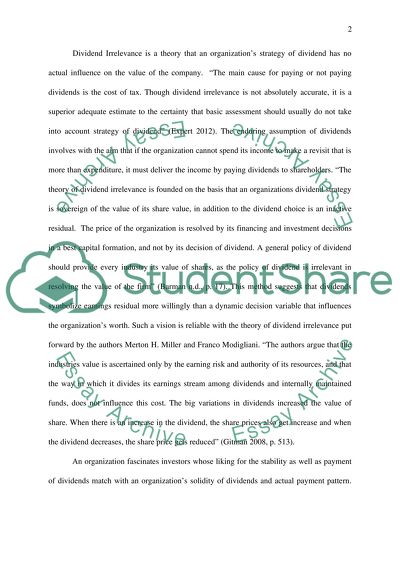Cite this document
(“Discuss the Proposition that a Company's Dividend Policy is Irrelevant Essay”, n.d.)
Retrieved de https://studentshare.org/finance-accounting/1444575-discuss-the-proposition-that-a-company-s-dividend
Retrieved de https://studentshare.org/finance-accounting/1444575-discuss-the-proposition-that-a-company-s-dividend
(Discuss the Proposition That a Company'S Dividend Policy Is Irrelevant Essay)
https://studentshare.org/finance-accounting/1444575-discuss-the-proposition-that-a-company-s-dividend.
https://studentshare.org/finance-accounting/1444575-discuss-the-proposition-that-a-company-s-dividend.
“Discuss the Proposition That a Company'S Dividend Policy Is Irrelevant Essay”, n.d. https://studentshare.org/finance-accounting/1444575-discuss-the-proposition-that-a-company-s-dividend.


